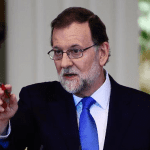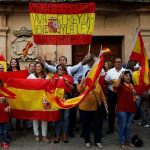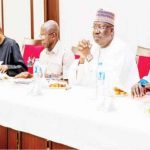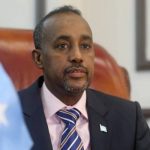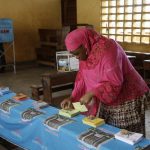Somalia has begun to revamp its political system, with an agreement inked between the government and the federated states that calls for the implementation of direct universal suffrage and the transition to a presidential system beginning in 2024.
The accord, which must be ratified by Parliament, aims to put into action the oft-repeated but never fulfilled pledge of a vote based on the principle of “one person, one vote” from the June 30th, 2024 municipal elections.
These will be followed by elections for regional parliaments and presidents on November 30th, 2024.
This principle of direct universal suffrage had disappeared after dictator Siad Barré seized power in 1969 in this Horn of Africa country.
At a news conference on Sunday, President Hassan Sheikh Mohamoud and many other heads of federated states said, “We have decided to return decision-making to the people, so that the voice of the Somali citizen becomes valuable in matters relating to his future.”
After the chaos that followed the fall of Siad Barré in 1991, Somalia’s political system revolved around the myriad clans and sub-clans that make up its society.
Until now, elections have been held through a complex indirect process, a source of power struggles and instability which, according to many observers, has benefited the radical’s insurgency that has been bloodying the country since 2007.
Elected in May 2022 for a second term (after his first in 2012-2017), Hassan Cheikh Mohamoud promised in March that the next national and regional elections would be held on the principle of “one person, one vote”.
A first step had been taken this week with the initiative of the semi-autonomous northern state of Puntland, which organized its district council elections according to this principle.
The ballot was praised and cited as an example by the international community.
In addition to the voting system, the agreement outlines a broader overhaul of Somalia’s political system, with the introduction of a presidential system to replace the current parliamentary system.
The local council elections will serve as the basis for elections at national level, which will be held under the “closed-list proportional system” and contested by two parties only.
This agreement was reached at the end of a four-day meeting of the National Consultative Forum, bringing together Hassan Sheikh Mohamoud, Prime Minister Hamza Abdi Barre and the leaders of the federated states.
The President of Puntland, Saïd Abdullahi Deni, was not present to sign the agreement.
The text represents a major step forward. Hassan Sheikh Mohamoud’s predecessor, Mohammed Abdullahi Mohamed, known as “Farmajo”, had stated his desire to organize elections on the principle of “one person, one vote”, but failed to do so, against a backdrop of tensions with certain states.
Since his election, Hassan Cheikh Mohamoud has stepped up his efforts to extricate Somalia from the chronic instability in which it has been living for decades.
In particular, he has declared “all-out war” on the radical affiliated group that has been fighting the internationally-backed federal government for over 15 years.
The President launched a military offensive in September, supported by the African Union force (Atmis) and US air strikes, allowing the group to recapture territory in the country’s center.
Terrorists were driven out of major cities in 2011-2012, but they remain entrenched in huge rural areas.
The country is also dealing with a humanitarian crisis, which includes a historic drought that began at the end of 2020 and recent flooding.



